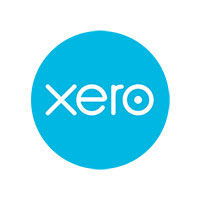 In the fifth article of our year end series we look at Capital Gains Tax planning points, but we start with looking at how Gift Aid donations can help to reduce your tax bill.
In the fifth article of our year end series we look at Capital Gains Tax planning points, but we start with looking at how Gift Aid donations can help to reduce your tax bill.
Give and save
Giving to charity under Gift Aid can result in a win/win for both the donor and the charity.
Making a Gift Aid donation will reduce your tax bill for the year in which the donation is made if your total income is above the 40% threshold (£50,000 for 2019/20). Taxpayers resident in Scotland can save tax with Gift Aid donations if their total income, including earnings, is above the 21% threshold (£24,945 for 2019/20). Alternatively, you can shift the tax benefit of some or all of that gift back one year by telling HMRC on your tax return. This can be useful if your marginal tax rate was higher last year than in the current tax year.
To carry back the Gift Aid donation it must be made before you file your tax return for the earlier tax year. Say you make a Gift Aid donation of £2,000 on 21 December 2020. If you submit your 2019/20 tax return after that date (it’s due by 31 January 2021) you can include a claim in that return to carry back up to £2,000 of the donation you made on 21 December 2020, which will reduce your 2019/20 tax liability.
Gift Aid can reduce your income used to calculate the clawback of Child Benefit (income over £50,000) and the reduction in Personal Allowance (income over £100,000). It can also increase your higher rate or additional rate threshold, which determine whether you receive a Personal Savings Allowance of £1,000, £500 or nil.
To make a valid Gift Aid donation, you must declare that you will pay sufficient tax to cover 25% of the value of your gift in the year the gift is made. If you give £800 under Gift Aid, you must pay Income Tax and/or Capital Gains Tax of at least £200.
Planning gains
Everyone has an annual exemption for Capital Gains Tax (CGT) of £12,000 for 2019/20. This is wasted if you don’t make Capital Gains in the tax year. You can’t carry forward any unused exemption to a different tax year or transfer the exemption to another person.
If you are planning to dispose of assets which will create Capital Gains, you can save tax if the disposals are spread over several tax years. This is easy to do if your assets can be split into separate chunks, like shares. Each sale can then be calculated to produce a gain of less than £12,000.
If the asset must be sold in one go, you could reinvest part or all of the gain in Enterprise Investment Scheme (EIS) shares, but you must be prepared to take a risk. This will defer the gain until the EIS shares are sold. You can sell sufficient EIS shares in later years, so the gain is covered by your annual exemptions.
When you give a valuable asset to a relative, the disposal is treated like an open market sale, and the deemed gain is taxable. However, gifts to your spouse or civil partner don’t create immediate taxable gains, as the recipient takes over the transferor’s CGT cost. You can use this transfer between spouses to share the ownership of a property, and hence the gain, and thus use two annual exemptions in one tax year.
Legal advice should always be taken when giving away land or buildings, or a share in such property. Stamp duty land tax (or similar taxes in Scotland or Wales) may be payable if the property is mortgaged.
Profit from your home
Contrary to popular belief, the profit you make when you sell your home, or a former home, is not automatically exempt from Capital Gains Tax (CGT).
This tax exemption only applies to gains that relate to periods in which you lived in the property as your main home. However, it can be extended to certain periods when you were not living in that property.
For example, the last 18 months of ownership are exempt from tax, which is extended to 36 months where the owner or their spouse is disabled or moves into residential care. The 18-month exemption is to be cut to nine months for sales made after 5 April 2020, but the 36-month exemption will remain in place.
Where you have let your former home at any time, even before you moved into the property, up to £40,000 of the gain can be exempt from CGT for each owner. This ‘lettings relief’ is to be restricted for sales from 6 April 2020, so that it will only apply where the owner was in occupation at the same time as the tenant. The change will mean that nearly all periods of letting in the past will no longer qualify for the tax exemption.
Talk to us if you are planning to sell your home in 2020, as there are a number of tax reliefs which could affect the tax you pay.
Selling your business
For many people the New Year prompts a review of their life goals. If you are wondering whether, or when, you should sell your business, a sensible first step is to form an outline plan for its disposal.
The sale of a successful trading company will generate a Capital Gain. This would normally be taxed at 20% after deduction of your annual exemption (£12,000 for 2019/20).
Entrepreneurs’ Relief can reduce your tax rate to 10% on a gain of up to £1m, made with effect from 11 March 2020. If you want to be sure of benefiting from this relief, take advice.
To be eligible to use Entrepreneurs’ Relief you must meet these conditions for at least 24 months ending with the date of the sale:
- be an employee, director or company secretary of the company or of another company in the same trading group
- hold at least 5% of the ordinary share capital of the company
- hold at least 5% of the voting rights of the company
- be entitled to at least 5% of the distributable profits available to the equity holders
- be entitled to at least 5% of the profits and assets available for distribution to equity holders on the winding up or
- be entitled to receive at least 5% of the total proceeds on the sale of the entire company
If you plan to sell your company and carry on the business on a smaller scale as an individual or partnership, or start up the same business again within two years, you can be caught by anti-avoidance legislation which will tax the gain as income.
Please contact Vinnie Rome or Nick Luck if you would like to discuss any of the tax planning points covered in this series; on 01689 877081 or complete our online form.
Registered as Auditors in the United Kingdom by the Association of Chartered Certified Accountants.




